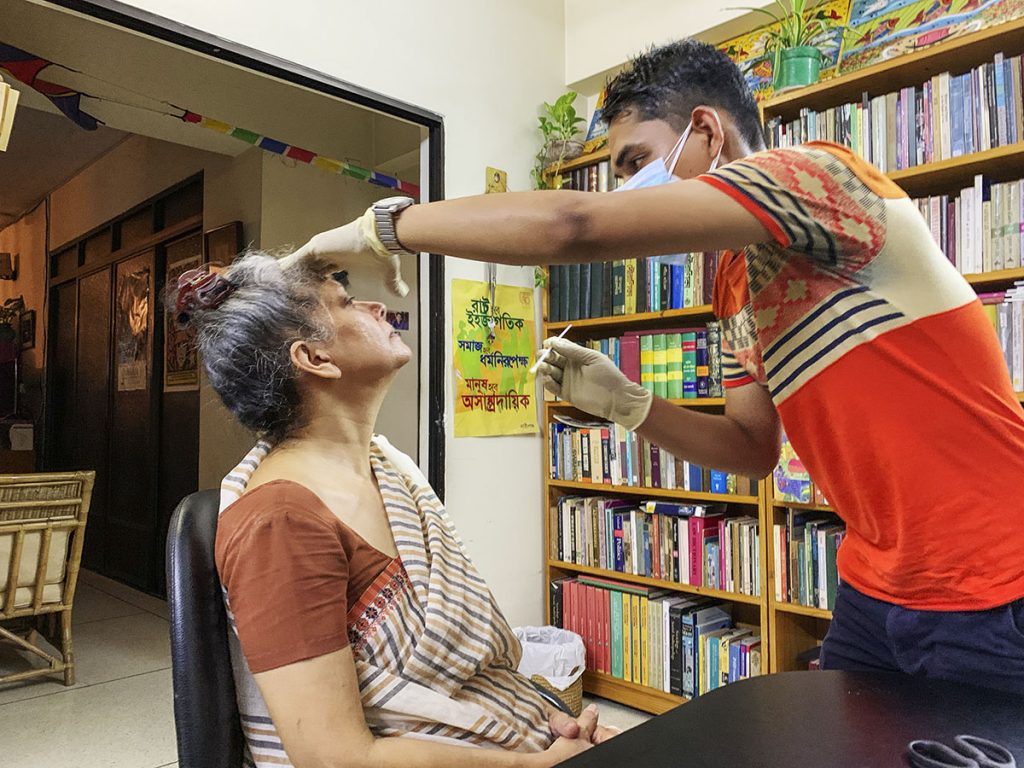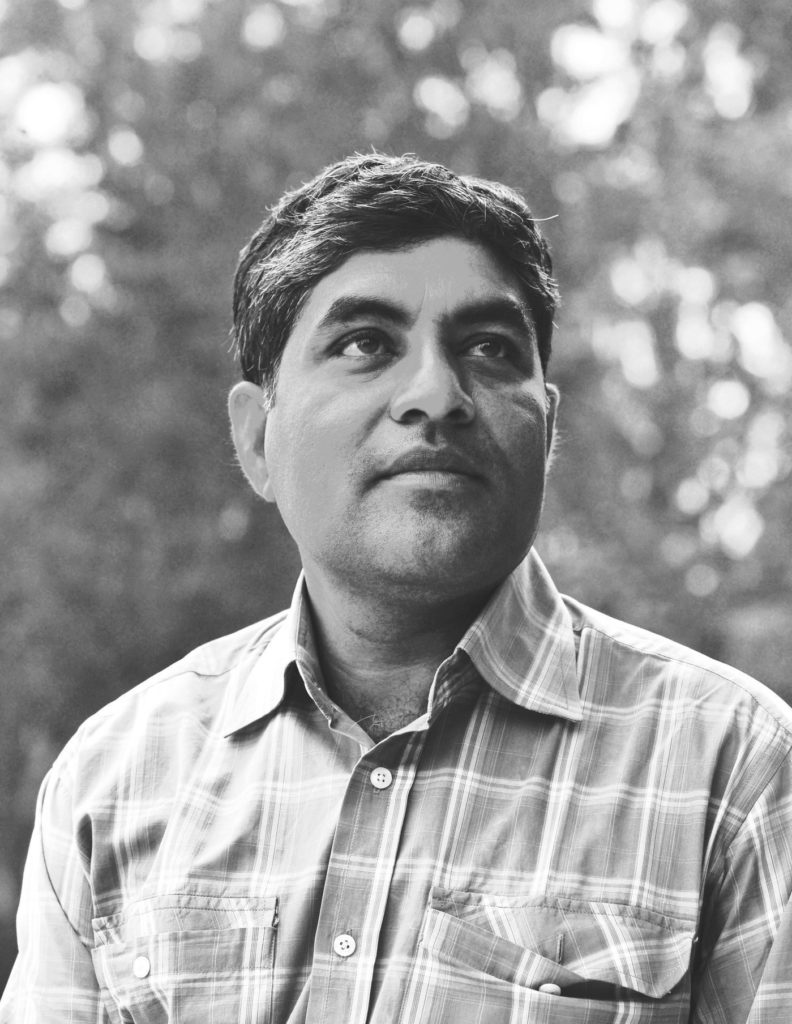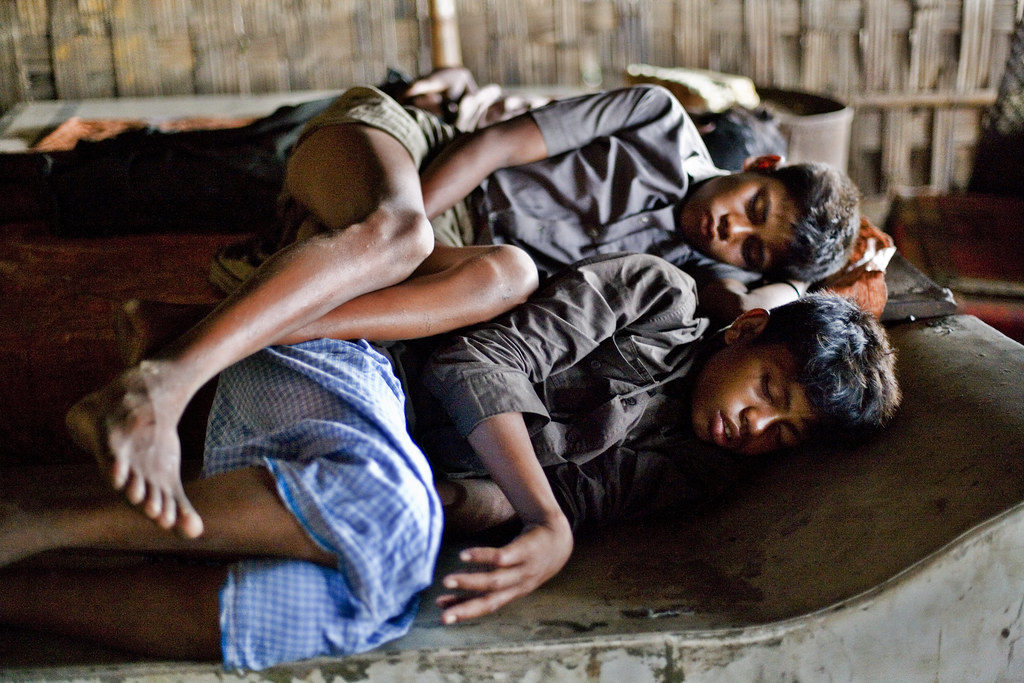The rains are late this year, but I’m not complaining. The monsoons is my favourite season. Tagore’s lyrics rendered beautifully by Jayati Chakraborty. Get a big screen,. Good speakers. Sit back and enjoy.
Category: South Asia
My Grandfather’s Diary
Making us pay with our lives
‘Could you get a small size pizza and some French fries for Zafrullah and send to GK? He is not eating and maybe a change in menu will help.’ It was our very own freedom fighter Dr Zafrullah Chowdhury that Shireen Huq, his wife, was talking about, and I wasted no time in my search for the pizza.

করোনাকালের করুণা খান
Nahida Ashrafi. Photo: Rahnuma Ahmed
করোনাকালের করুণা খান
নাহিদা আশরাফী
The virus doesn’t but the powerful do
LOUD and angry, the child’s voice reverberates along the Dhanmondi streets. Unlike the other cries, this one quickly recedes before I can turn on my audio recorder. The incessant pneumatic horns, the screeching of brakes, the dust spewing up from potholed worn tarmac that bedraggled buses bump their way through have gone. With factories and offices closed, load sheddings have also gone down, though the transformer blowing up as the kal boishakhi storm hit, did lead to a power outage. Above the cawing of a crow that has built its nest close to our verandah, we can hear other birds sing. Sounds interspersed with calls of small time vendors, trading what they can, selling what they can. While they can. Despite the other sounds, the child’s cry keeps echoing in my mind.
 Running down the street as she cries for food, Dhanmondi. — Shahidul Alam/Drik/Majority World
Running down the street as she cries for food, Dhanmondi. — Shahidul Alam/Drik/Majority World
The Gonoshasthya Kendra’s Corona Test Kit. Cui Bono?
Cui bono is often a good starting point in an investigation. Literally meaning ‘who benefits?’ Whoever appears to have the most to gain from a ‘crime’ is probably the culprit. Stepping back from the ‘whodunnit’ nature of the drama that is playing out, we could be less dramatic and just look at the meaningfulness or advantages of carrying out an important function.
At this point in Bangladesh, as in many other countries, there are few things more important to do, than to detect whether or not one has been infected by the Covid-19 virus. For many, it could literally be a matter of life and death. It is beyond dispute that an efficient, accurate and affordable kit that could be made readily available would be of immense value to the country.
Zafrullah Chowdhury (born December 27, 1941) is a Bangladeshi public health activist. He is the founder of Gonoshasthaya Kendra (meaning the People's Health Center in Bengali), a rural healthcare organisation. Dr. Chowdhury is known more for his work in formulating the Bangladesh National Drug Policy in 1982. Photo: Shahidul Alam/Drik/Majority World
Continue reading “The Gonoshasthya Kendra’s Corona Test Kit. Cui Bono?”
The journalist who got too close
‘REPEAT a lie often enough and it becomes the truth’, is a law of propaganda often attributed to the Nazi Joseph Goebbels. The Bangladesh government seems to have studied Goebbels’ book well. The lies generally come in the form of denials. ‘No, we have not been involved in “crossfire” and “disappearances”.’ ‘There is no political motive.’ ‘No one will be spared.’ ‘The elections were fair.’ ‘The judiciary is independent,’ the list goes on. The lies are repeated ad nauseam in political rallies, in talk shows, in press briefings and through social media trolls.

‘We do not condone any such incident and will bring the responsible officials to justice’ said the foreign minister Dipu Moni at the Universal Periodic Review of Bangladesh at the Human Rights Council in Geneva on February 4, 2009 in response to accusations that the government was involved in ‘crossfire,’ a Bangladeshi euphemism for extra-judicial killings. She added that the government would show ‘zero tolerance’ to extra-judicial killings, or torture and death in custody. Indeed, doing so was part of the election campaign for the Bangladesh Awami League when they were in the opposition. As often happens however, once elected, their position changed, and ‘crossfire’ has become so integral to the Bangladeshi lingo that MPs now use the term in parliament, ‘You are allowing crossfire as part of a fight against drugs. Then why aren’t you doing the same in case of rape?’ Continue reading “The journalist who got too close”
The Price of Social Distancing
Rahnuma forwarded me Laily’s wrenching FaceBook post. Her father is dying, far away in a UK hospital. Heart breaking, holding back tears, she and her family watch from afar. Unable to touch, to hold, to caress the person who is dearest to them. This is what Corona means in real terms. It was through her research on one of my heroes, the peasant leader Abdul Hamid Khan Bhashani, and later through them staying at the Pathshala Guest House, that we got to know her. Bhashani’s principle of putting nation before self and his simple lifestyle is a very distant reality from the ruling politicians of today. Despite its pain, Laily’s post reminded me of my own dad and my childhood. I remembered dad resting in his easy chair. His belly just the right slope for us kids to use as a living slide. We used to call him bhalluk (bear), and every day as he rested after lunch, my cousins and I would line up behind the easy chair, clamber up to his shoulders and slide down his belly. Mum would freak out, as my dad had osteomyelitis as a child and had never fully recovered. His shins were always exposed and very fragile. Quite apart from wanting him to rest, the idea that we might aggravate his injury worried her. Abba was unperturbed, happy to be teddy bear to a room full of kids. We’d run back to the end of the queue to slide down again. We were always tired before Abba ever did. We didn’t think of it as physical contact in those days. When Abba died, I remember feeling the stubble that had grown on his soft skin, as I stroked him before we laid him down.
Newcomers to Bangladesh are overwhelmed by the generosity of our village folk. They love it when strangers clasp their hands, but are somewhat unsure when seconds, sometimes minutes pass, before their hands are reluctantly released. Years ago, when we at Drik were trying to improve our English skills, we struck a deal with the local office of the British Council. Unable to pay for the expensive English classes, we negotiated a barter. We would do their photography. They in turn, would teach us English. It wasn’t just language skills though, it was learning English culture. One of the first things our English teachers told us was to release the hand quickly! Prolonged physical contact could make the English squirm.

Obituary of a Democracy
In an interview with Shahidul Alam from his hospital bed, Chief Coordinator of Ganosamhati Andolon, Zonayed Saki, talks about the attack by police which left over fifty of his comrades injured. General Secretary of Biplobi Workers’ Party Saiful Haq was also injured. They were protesting the rigged elections on 30 December 2018. Opposition activists remember 30 December for the ‘Death of Democracy’.
I am Zonayed Saki. I am the chief coordinator of Gonosamhati Andolon.
Gonosamhati Andolon is a political party in Bangladesh working for the rights of people.
You all know that in Bangladesh on the 30th December 2018, the election that took place was a vote robbery.
There has never before been an election like this in Bangladesh. Most ballots were stamped the previous night, and they filled up the ballot boxes.
And the entire state machinery was used towards this vote robbery.
There has never been a previous instance where this has happened in Bangladesh, because the Prime Minister had, prior to the election, had discussions with all political parties of Bangladesh. Continue reading “Obituary of a Democracy”
Statement of South Asian Independent Citizens on India’s Citizenship Amendment Act
Statement of South Asian Independent Citizens on India’s Citizenship Amendment Act
26 December 2019
We independent citizens of countries neighbouring India hereby register our reservations about the Citizenship Amendment Act adopted by India’s Parliament, which aims to provide Indian citizenship to non-Muslims from three select countries – Pakistan, Bangladesh and Afghanistan.
The Act is discriminatory at the first instance because it is targeted against Muslims beyond the stated intent of the law. It is unacceptable for a country with a secular Constitution to distinguish between foreign citizens on the basis of religion. Further, the Act has the potential of deepening geopolitical schisms among the countries of South Asia, which should be striving for peace and mutual understanding.
We are further concerned that the announced India-wide National Register of Citizens or an adapted exercise, planned as follow-up to the CAA, will make vulnerable tens of millions of people. As observers of India, we had not understood citizenship to be a major problem in the country when compared to many other pressing issues of social justice. We fear that such a programme will have deadly fallout, particularly for the 200 million Muslims living under the umbrella of a secular Constitution of India.
The signatories believe that India’s plans for growth and equity is being hurt by ill-advised attempts at social engineering, and this in turn will impact the larger South Asian region. A weakened, insular India would not be able to take a stand on urgent matters confronting humanity, such as nuclear weaponisation, the climate crisis, hi-tech surveillance and runaway pollution.
We question the logic of the Indian Government wanting to extend citizenship to Hindus, Jains, Christians and Sikhs when there are also larger numbers of Muslims of different sects in the three selected countries enduring sectarian strife. These include Ahmedia and Shia, particularly Hazara, of Pakistan and Ahmediya of Bangladesh. What of the thousands of Tamil refugees of Sri Lanka, and the Rohingya who are so vulnerable in Myanmar and as refugees in Bangladesh?
If the authorities in New Delhi were seeking the well-being of religious minorities in the three selected countries, it should have engaged in sustained diplomatic effort to ensure their protection. We believe that with its action the Government of India has made religious minorities in the three countries more vulnerable than they were earlier.
The most logical approach for India is to join the 1951 UN Convention on Refugees, and to be open to foreigners of any faith or persuasion who are in distress. To select non-citizens based on faith is in defiance of basic human values.
The rest of South Asia has long appreciated the spirit of inclusion and social justice that has marked modern India, a country that has stood for democracy, pluralism and freedom. We signatories of this statement are distressed by the decisive majoritarian turn in India, and the intolerance evident in the ongoing crackdown on peaceful dissent.
A democratic, pluralist India that promotes solidarity, co-existence and mutual respect among diverse ethnic, religious and cultural communities of citizens within its borders is vital for a peaceful and stable South Asia.
Signatories:
Arif Hasan, Karachi
Beena Sarwar, Karachi
Hameeda Hossain, Dhaka
I.A. Rehman, Lahore
Jayadeva Uyangoda, Colombo
Kanak Mani Dixit, Lalitpur
Mahesh Maskey, Kathmandu
Mubashir Hasan, Lahore
NayanTara Gurung Kakshapati, Lalitpur
Pervez Hoodbhoy, Islamabad
Pratyoush Onta, Lalitpur
Serajul Islam Choudhury, Dhaka
Shahidul Alam, Dhaka
Sumathy Sivamohan, Peradeniya
Since this statement came out. Several others have also wanted to be signatories. It will be too complicated to change the sequence every time a new name is added, so new names will be added in the order in which they are received. If you want your name to be added, please say so in the comments section and I’ll add it as soon as I can.
Sultana Kamal, Dhaka
Khushi Kabir, Dhaka
Mohammad Shahnewaz Khan, Chattagram
Tanzim Wahab, Dhaka
Bikas Rauniar, Kathmandu
Faruq Faisel, Dhaka
